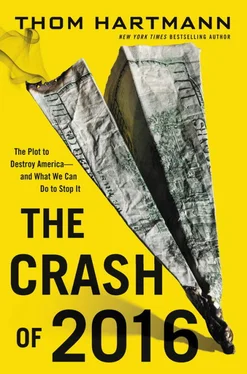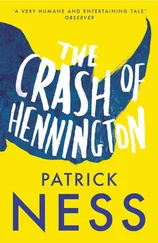And this was why Lizzie Magie invented that early version of what we today call the board game Monopoly. It was her hope, and that of many, that the stranglehold of the Economic Royalists of the era could somehow be broken. She said, “Let the children once see clearly the gross injustice of our present… system and when they grow up, if they are allowed to develop naturally, the evil will soon be remedied.” 61
Early on, even before Parker Brothers acquired the patent on Monopoly, turning it into the game we know today, well-to-do college students would play the game in fraternity houses at the behest of far-left economic teachers such as Scott Nearing, whose autobiography was titled The Making of a Radical . The game was meant to answer a question about the current economy.
An early instruction manual for the game of Monopoly in 1925 reads, “At the start of the game every player is provided with the same amount of capital and presumably has exactly the same chance of success as every other player. The game ends with one person in possession of all the money. What accounts for the failure of the rest, and what one factor can be singled out to explain the obviously ill-adjusted distributions of the community’s wealth which this situation represents?” 62
It was a similar question asked by Henry George, whom Chrystia Freeland refers to in her book Plutocrats as “the most famous American popular economist you’ve never heard of.” 63
George was the author of the book Progress and Poverty , in which he sets out to answer a fundamental question of the Gilded Age: Why are so many people living in poverty while others are getting so rich in an expanding economy?
George writes in Progress and Poverty , “The present century has been marked by a prodigious increase in wealth producing power.” Yet, working people were not sharing these gains. 64
“We are coming into collision with facts which there can be no mistaking,” George writes. “From all parts of the civilized world come complaints of industrial depression; of labor condemned to involuntary idleness; of capital massed and wasting; of pecuniary distress among businessmen; of want and suffering and anxiety among the working classes.”
He goes on, “Some get an infinitely better and easier living, but others find it hard to get a living at all. The ‘tramp’ comes with the locomotives, and almshouses and prisons are as surely the marks of ‘material progress’ as are costly dwellings, rich warehouses and magnificent churches.”
America was split in two. Not between North and South, but between the Robber Barons and everyone else.
Eventually, the nation learned the lesson that not only is the accumulation of vast amounts of wealth in the hands of an elite aristocracy not good for working people, it’s also not good for economies as a whole, which is exactly what the game Monopoly teaches us.
But first, it took a horrific crash.
The period from the 1870s through the late 1890s, when the Economic Royalists came out of the Great Crash of 1857 and Civil War still in power, were the longest, deepest, and most brutal Great Depression in American history, far worse than what we saw in the 1930s. And at the same time, the rich got richer in a way that wasn’t again seen until today. America in that era more resembled Victorian England than that idealistic, egalitarian society envisioned by our revolutionary Founding Fathers.
The peak of the crisis was the crash of 1893.
A fifth of American workers lost their jobs. And countless lost their savings, too, as more than 150 national banks failed alongside more than 170 state banks and 177 private banks. It was the worst economic depression the nation had ever suffered.
What the Robber Barons failed to understand is that by crushing the middle class, they signed their own suicide pact as well. They destroyed their consumers—or their playing partners on the board game of Monopoly. And when working people hit rock bottom and can no longer afford to buy anything in the economy, then everything shuts down.
Eventually, future generations heeded Lizzie Magie’s advice in the game Monopoly. The Robber Barons were crushed during the Progressive Era of the early 1900s, and FDR rebuilt the middle class with the New Deal.
But as the cycles would again have it, a second dark period of Royalist rule began in the 1980s, when Ronald Reagan moved in to the White House.
CHAPTER 5
Reagan Kidnapped the Jetsons
MS. MORNIN: That’s good, because I work three jobs and I feel like I contribute.
THE PRESIDENT: You work three jobs?
MS. MORNIN: Three jobs, yes.
THE PRESIDENT: Uniquely American, isn’t it? I mean, that is fantastic that you’re doing that.
—President George W. Bush, Omaha (Neb.) Town Hall, February 2005
In a 1966 article, TIME magazine looked ahead toward the future and what the rise of automation would mean for average working Americans.
It concluded, “By 2000, the machines will be producing so much that everyone in the U.S. will, in effect, be independently wealthy. With Government benefits, even nonworking families will have, by one estimate, an annual income of $30,000–$40,000. How to use leisure meaningfully will be a major problem.” And that was $30,000–$40,000 in 1966 dollars, which would be roughly $199,000 to $260,000 in 2010 dollars. 65
Ask anybody who was teenage or older in the 1960s, this was the big sales pitch for automation and the coming computer age. There was even a cartoon show about it— The Jetsons —and everybody looked forward to the day when increased productivity from robots, computers, and automation would translate into fewer hours worked, or more pay, or both, for every American worker.
And there was good logic behind the idea.
The premise was simple. With better technology, companies would become more efficient. They’d be able to make more things in less time. Revenues would skyrocket, and Americans would bring home higher and higher paychecks, all the while working less and less.
So by the year 2000, we would enter what was then referred to as “The Leisure Society.” Futurists speculated that the biggest problem facing America in that Jetsons future would be just how the heck everyone would use all their extra leisure time!
And, of course, there were also those who were worried about what kind of degeneracy would emerge when a nation has lots of money and lots of free time on its hands.
This didn’t happen. And it didn’t happen because Ronald Reagan stole the Leisure Society from us and he handed it over to the Economic Royalists.
Tax Cuts of Mass Destruction
In 1981, the Royalists went right to work taking down that first pillar on which FDR rebuilt the American middle class: progressive taxation.
Taking advantage of the oil-shock crisis, neoliberal shock troopers immediately ushered through a revolutionary change to the tax code with the Economic Recovery Tax Act of 1981.
The first major piece of legislation signed by Reagan, it slashed the top marginal income tax rate down from 70 to 50 percent, cutting estate taxes for wealthy businesses and slashing capital-gains and corporate-profit taxes.
Reagan succeeded, a few years later, in dropping the top income tax rate even lower, to 28 percent—where it hadn’t been since before the Great Depression. It was the second largest tax cut in history. And it was nearly identical to the largest tax cut ever, Treasury Secretary Andrew Mellon’s in the 1920s, the one that created the bubble known as the Roaring Twenties, which eventually burst in 1929.
The Great Forgetting had certainly arrived. The economic mistakes of the 1920s were coming back around. And, again, the influx of all this hot money in the market, coupled with a robust deregulation agenda through the 1980s and 1990s, would trigger a series of painful financial panics.
Читать дальше












